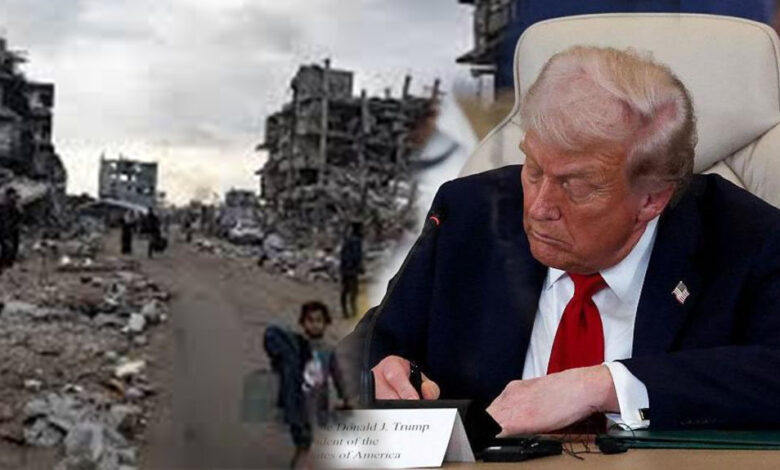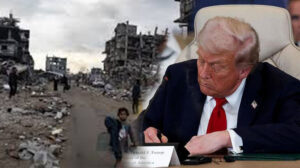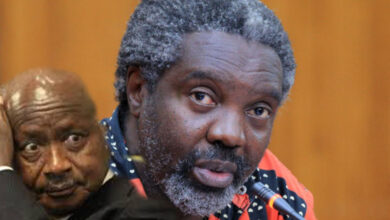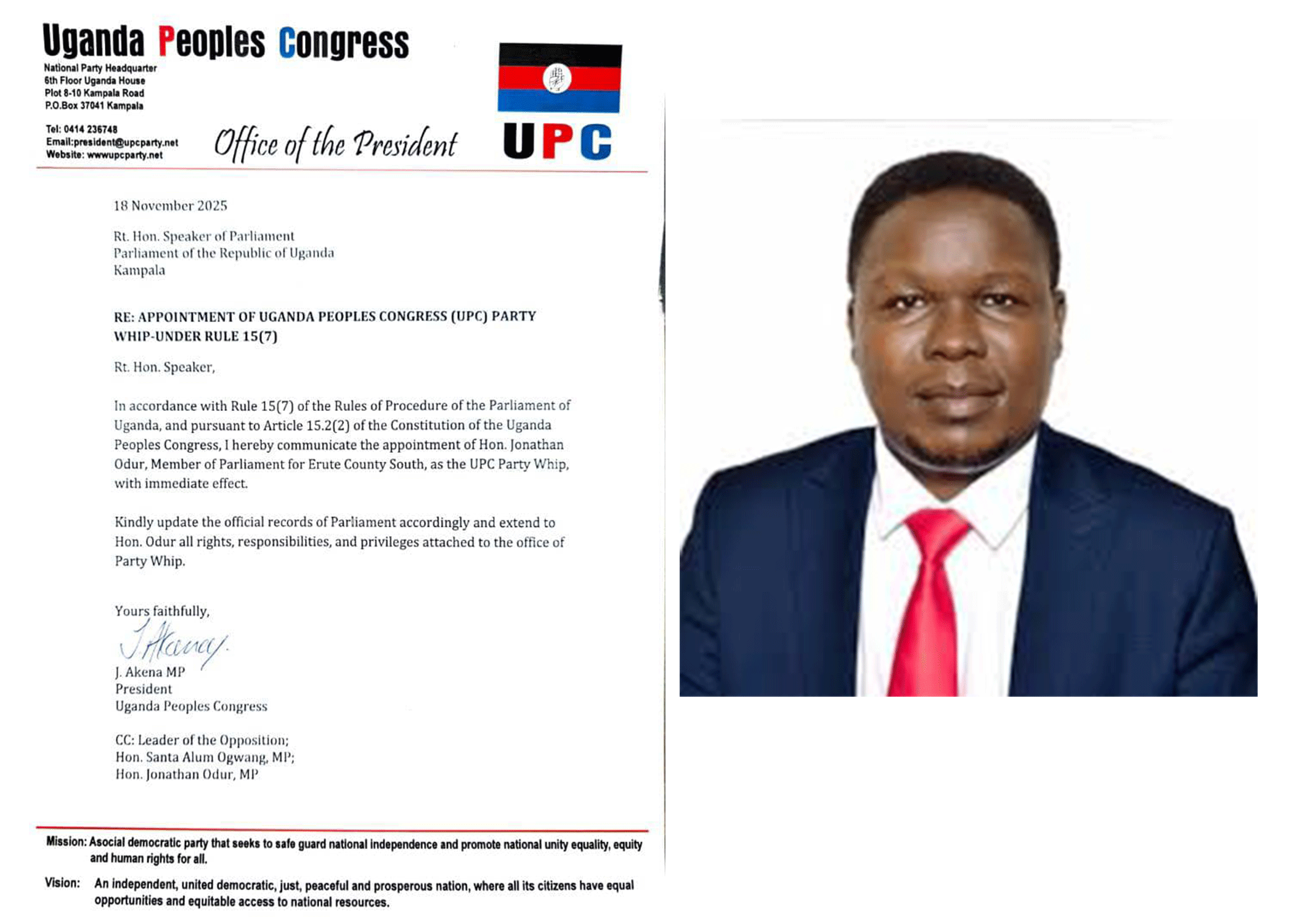BREAKING: Trump, in Unprecedented Move, Formalizes Gaza Peace Plan Following Hamas Release of 20 Hostages
In a dramatic and unexpected exercise of executive power, President Donald Trump today signed a presidential directive formally solidifying his administration’s proposed framework for a permanent peace between Israel and the Palestinians, a plan he has dubbed the "Vision for Gaza Prosperity."

13/October/2025
by Y.Emma#lcctv news
WASHINGTON, D.C. – In a dramatic and unexpected exercise of executive power, President Donald Trump today signed a presidential directive formally solidifying his administration’s proposed framework for a permanent peace between Israel and the Palestinians, a plan he has dubbed the “Vision for Gaza Prosperity.” The signing comes just hours after the militant group Hamas released 20 Israeli hostages, a move widely seen as a direct confidence-building gesture in response to the plan’s preliminary rollout.
The announcement, made from the Oval Office, marks a significant escalation in the administration’s push to resolve one of the world’s most intractable conflicts. Flanked by senior advisors, including Senior Advisor Jared Kushner, the architect of the plan, President Trump characterized the moment as “a historic day for peace.”
“With the release of these innocent people, we have seen that a new future is possible,” the President stated. “Today, by the stroke of a pen, we are making the Gaza Peace Plan the official policy of the United States. We are replacing decades of failure with a new vision for security, prosperity, and dignity for all.”
While the full text of the signed directive is classified, senior administration officials briefing reporters outlined its core tenets, which appear to be an enhanced version of the economic portion of the broader “Peace to Prosperity” plan unveiled earlier this year. Key elements now being formally enacted include:
Immediate establishment of a U.S.-supervised maritime aid and trade corridor, bypassing land routes controlled by Israel and Egypt, to directly deliver humanitarian supplies and commercial goods to the Gaza Strip.
The creation of a multi-billion dollar international fund, with initial capital from the U.S., Gulf Arab states, and the European Union, aimed at financing massive infrastructure projects in Gaza, including a new seaport, desalination plants, and power generation facilities.
A commitment to work with regional partners, including Egypt and Jordan, to oversee a comprehensive demilitarization of Hamas and other militant groups, to be replaced by a reformed Palestinian Authority security force. The plan explicitly links the immediate flow of aid and economic development to the complete and verifiable disarmament of militant factions in Gaza.
The timing of the presidential directive is a clear attempt to capitalize on the momentum generated by the hostage release. The 20 hostages, who include women and minors, were handed over to the International Committee of the Red Cross at the Gaza-Israel border and are currently undergoing medical checks. Their release is the first major breakthrough in a months-long, Qatar-mediated negotiation process that had been stalled.
Analysts suggest President Trump’s move is a high-stakes gambit to force the hands of all parties involved. “The President is essentially creating facts on the ground,” said Dr. Elena Vance, a senior fellow at the Center for Strategic and International Studies. “By formalizing the plan unilaterally after a positive signal from Hamas, he is putting immense pressure on the Israeli government to engage seriously and presenting the Palestinian leadership with a stark choice: get on board with a plan that offers immediate economic relief or bear the responsibility for rejecting it.”
Initial reactions have been sharply divided. The Israeli Prime Minister’s office issued a cautious statement, welcoming the hostage release but noting that the “security components of any plan are non-negotiable and must be absolute.”
Hamas, in a statement from its political bureau in Doha, called the U.S. plan “a political maneuver” but did not reject it outright, instead stating it is “reviewing all proposals that could end the suffering of our people.” This ambiguous response is seen by some as a significant, albeit tentative, shift.
The Palestinian Authority in Ramallah, however, was swift to condemn the move. A spokesman called it “a violation of international law and a blatant attempt to impose a unilateral solution that legitimizes the occupation.”
Meanwhile, world leaders are scrambling to assess the implications. The United Nations Secretary-General has called for an emergency session of the Security Council, while key U.S. allies in Europe have expressed cautious optimism mixed with concern over the plan’s unilateral nature.
With the pen stroke, President Trump has irrevocably altered the diplomatic landscape. The coming days will be critical, as the world watches to see if this bold move can translate a moment of fragile hope into a lasting framework for peace, or if it will collapse under the weight of decades of mistrust and conflict.
#lcctv news





